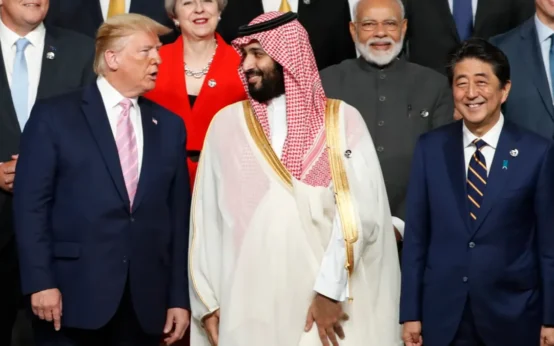Saudi Arabia Denies Plans to Lift Alcohol Ban
Official Denial of Alcohol Sales Reports
Saudi Arabia has firmly denied claims it plans to allow alcohol sales by 2026. A Saudi official stated on May 26, 2025, that reports suggesting a lift of the 73-year alcohol ban are false.

These claims, which surfaced in foreign media, lacked official confirmation. The kingdom, guided by Islamic law, maintains its prohibition on alcohol. This statement counters earlier reports tied to preparations for the 2034 FIFA World Cup and Expo 2030.
Background of the Alcohol Ban
Saudi Arabia has banned alcohol since 1952, rooted in its Wahhabi Islamic legal system. As home to Islam’s holiest sites, Mecca and Medina, the kingdom strictly prohibits alcohol for Muslims.
Saudi Arabia and Kuwait are the only Gulf countries with a complete ban on alcohol sales. The ban aligns with the country’s religious and cultural identity. Recent reforms under Crown Prince Mohammed bin Salman (MBS) have sparked speculation about changes.
False Reports and Their Origins
Reports claiming Saudi Arabia would permit alcohol sales by 2026 emerged from a wine blog. These were picked up by outlets like The US Sun and Times of India.
They suggested alcohol would be allowed in 600 tourist zones, including luxury hotels, to boost tourism. The reports tied the change to Vision 2030, aiming to diversify the economy. However, Saudi sources called these claims baseless, with no official backing.
Vision 2030 and Tourism Goals
Saudi Arabia’s Vision 2030 seeks to modernize and diversify its economy through tourism. In 2024, the kingdom welcomed 29.7 million international tourists, up 8% from 2023.
The country aims to compete with neighbors like the UAE and Bahrain, where alcohol is available. Despite reforms like allowing women to drive and hosting concerts, the alcohol ban remains a cultural cornerstone. Authorities emphasize a “culturally immersive” experience without alcohol.
Fact-Checking the 2026 Alcohol Claims
Fact-checking Desk of Worldinfo News reveals the 2026 alcohol sales reports are unverified. Saudi Arabia’s ambassador to the UK, Prince Khalid bin Bandar Al Saud, previously stated alcohol would remain banned during the 2034 World Cup.
A 2024 policy allowed limited alcohol sales for non-Muslim diplomats, but this was tightly regulated. No evidence supports a broader lifting of the ban. Media outlets have updated stories to reflect the official denial.
The denial of alcohol sales plans comes amid Saudi Arabia’s balancing act. The kingdom, under MBS, has pursued bold reforms to reshape its global image.
These include easing gender segregation and reducing the religious police’s power. Yet, the alcohol ban remains a sensitive issue due to the royal family’s reliance on religious legitimacy. The false reports sparked online debates, reflecting tensions between modernization and tradition.
The misinformation likely stemmed from Saudi Arabia’s tourism ambitions and upcoming global events. Hosting the 2034 World Cup has fueled speculation about policy shifts.
Earlier reports claimed alcohol would be sold in licensed venues like resorts, but Saudi officials clarified no such plans exist. The kingdom also tightened rules for diplomatic alcohol imports to curb misuse. This shows a commitment to maintaining strict controls.
Saudi Arabia’s stance underscores its focus on preserving Islamic values while expanding tourism. The denial quashes hopes of alcohol availability for tourists by 2026.
Instead, the kingdom aims to attract visitors with cultural and entertainment offerings. The rapid spread of unverified reports highlights the need for careful fact-checking, especially on sensitive cultural issues. As Saudi Arabia prepares for global events, its alcohol policy remains unchanged, rooted in tradition.


 Saudi Crown Prince’s Warning on Israel and Iran
Saudi Crown Prince’s Warning on Israel and Iran  Saudi Arabia to Allow Alcohol Sales in 600 Locations by 2026
Saudi Arabia to Allow Alcohol Sales in 600 Locations by 2026  Kevin De Bruyne leaving Manchester City
Kevin De Bruyne leaving Manchester City  Donald Trump Wants $1 Trillion Investment from Saudi Arabia
Donald Trump Wants $1 Trillion Investment from Saudi Arabia  India Meets Taliban Officials Has India Recognized the Taliban?
India Meets Taliban Officials Has India Recognized the Taliban?